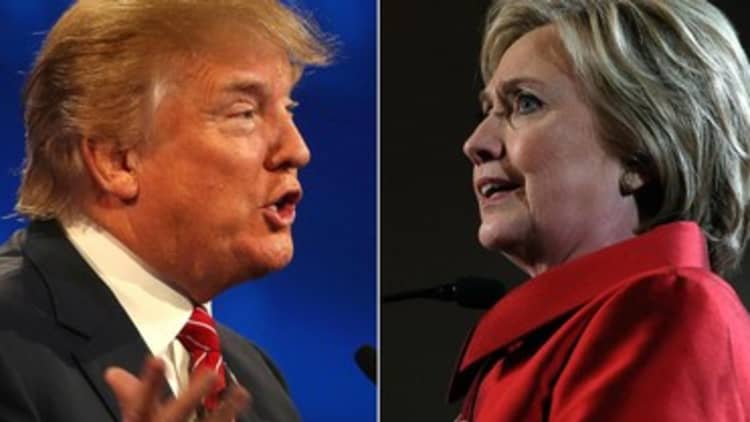



Is it time to put the Paul Ryan for president chatter to bed for good?
My Politico colleague Jake Sherman reports that when Ryan says he will not seek or accept the Republican nomination at the party's convention in Cleveland this summer, he absolutely, positively, indubitably means it. Ryan does not want the nomination, does not believe a candidate not currently running could, or should, get it. And he would not take it should convention delegates turn to him in a moment of crisis after multiple ballots and implore the House speaker to mount his trusty steed and ride into the fall election as his party's standard bearer.
Wall Street executives and others who have spoken with Ryan tell me the same thing. Sure they would love Ryan to be the nominee. He could potentially win, and he represents the kind of low-tax, low-regulation, pro-growth, optimistic conservatism that Wall Street Republicans love.
But the speaker has told them in no uncertain terms that they should stop fantasizing and face the reality that the nominee is going to be Donald Trump, Ted Cruz or, in a very unlikely scenario, Ohio Governor John Kasich.
So that settles it right? Well, not exactly.
Ryan can say anything he wants and it won't stop some people from dreaming that a deadlocked convention could fail to settle on any of the three current candidates and attempt to draft the House speaker against his own wishes to rescue the party and accept the nomination.
Sure, it would be unprecedented and could cause a major revolt among Trump and Cruz supporters. But the 2016 race is already an unprecedented circus, so ruling out any scenario as completely impossible is probably not a great idea.
Still, the Paul Ryan-as-savior scenario is best left in the "almost certainly not" category. Which leads us back to the "so who is it going to be?" question. Trump has suffered multiple recent setbacks, including losing all of Colorado's 34 delegates to Cruz in seven district conventions over the weekend. Trump has also been losing delegates to Cruz in states and congressional districts Trump had won, including in South Carolina and Massachusetts. These delegates will be pledged to Trump on the first ballot in Cleveland but could switch to Cruz if the real estate mogul fails to win on the first ballot.
And it now appears even more likely that Trump will go into Cleveland without the 1,237 delegates he needs to win on the first vote. That will be the case even if, as expected, Trump romps to a 50 percent-plus win in New York next week and takes most if not all of the Empire State's 95 delegates. To get all of them, Trump would need majorities in all of the state's 27 congressional districts. He could do that but probably won't.
Even if he does, a FiveThirtyEight analysis suggests Trump will still be off the pace to win an outright majority of delegates before the convention. He may even be so short that he could not win on the first ballot even if he picks up the 100 or so unpledged delegates in Cleveland. The GOP race is likely to go down to the final day of the primaries, June 7, which feature's California's winner-take-most contest with 172 delegates at stake.
The race in the Golden State is close, with Trump holding narrow leads over Cruz in most polls. But Trump is going to face a massive barrage of negative ads in California and Cruz is going all in on the state in an effort to make sure Trump can't hit, or even get near 1,237. If Cruz pulls out a win in the state, he may well wind up with the momentum heading into Cleveland. And his shrewd and aggressive delegate operation may deliver him the nomination after a couple of ballots. In fact, to many observers, a Cruz nomination is starting to seem like the most likely scenario.
What about Kasich? The Ohio governor has just 143 delegates, fewer than Florida Sen. Marco Rubio, who dropped out weeks ago. He's won only his home state and is not favored in any remaining contests, even in Northeast and mid-Atlantic states that should be favorable to him. But Kasich is not giving up because he believes delegates in Cleveland will settle on him as the best option for the fall after Trump and Cruz fail to garner majorities.
This is not a completely impossible dream. But it's only slightly more plausible than convention delegates locking Paul Ryan in a room and forcing him to change his mind about accepting the nomination.
But then, Ryan also said he would never seek to become House speaker.
—Ben White is Politico's chief economic correspondent and a CNBC contributor. He also authors the daily tip sheet Politico Morning Money [politico.com/morningmoney]. Follow him on Twitter @morningmoneyben.



